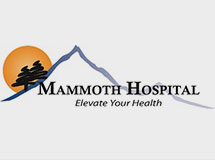Back Pain
The incidence of back pain has drastically increased. Approximately 90% of Americans experience back pain at different stages of their life. In America, the annual expenditure for the treatment of back pain is approximately $50 billion. Back pain is not a disease; rather it is a symptom due to an underlying pathology.
Presentation
Pain in the lumbosacral region (lower back) is the most common type of back pain. Back pain may have a variable presentation.
- Pain localized to the lower back or pain radiating down the front, side or back of the legs
- Worsening of the pain with physical activity
- Aggravation of the pain at night or by sustained sitting posture such as long drives
- Numbness or weakness in the legs, which may result in difficulty to stand or inability to perform upward and downward movements of the foot
Causes
The common causes of back pain are as follows:
- Abdominal disorders such as appendicitis, kidney diseases, aneurysms, bladder infection, kidney infection, pelvic infection, and ovarian disorders
- Conditions such as pregnancy, due to stretching of ligaments and irritation of the nerves
- Tumors
- Spinal disorders such as herniated disc, spinal stenosis, cauda equine syndrome, fibromyalgia, osteomyelitis and spondylitis
- Inflammation of the spinal nerves
- After back surgery
Diagnosis
The diagnosis of the back pain includes medical history, physical examination and use of imaging techniques such as X-rays, MRI scan, CT scan and electromyogram or EMG. In some cases, blood tests such as sedimentation rate and complete blood count (CBC) may be also be ordered.
Treatment
Management of back pain comprises of rest, improvement in sitting or standing posture and medications. Different classes of medications such as NSAIDs, opioids analgesics, muscle relaxants and steroids may be prescribed. Surgery is recommended in cases which fail to respond to conservative modalities of treatment and in conditions such as herniated disc and other spinal disorders.





















